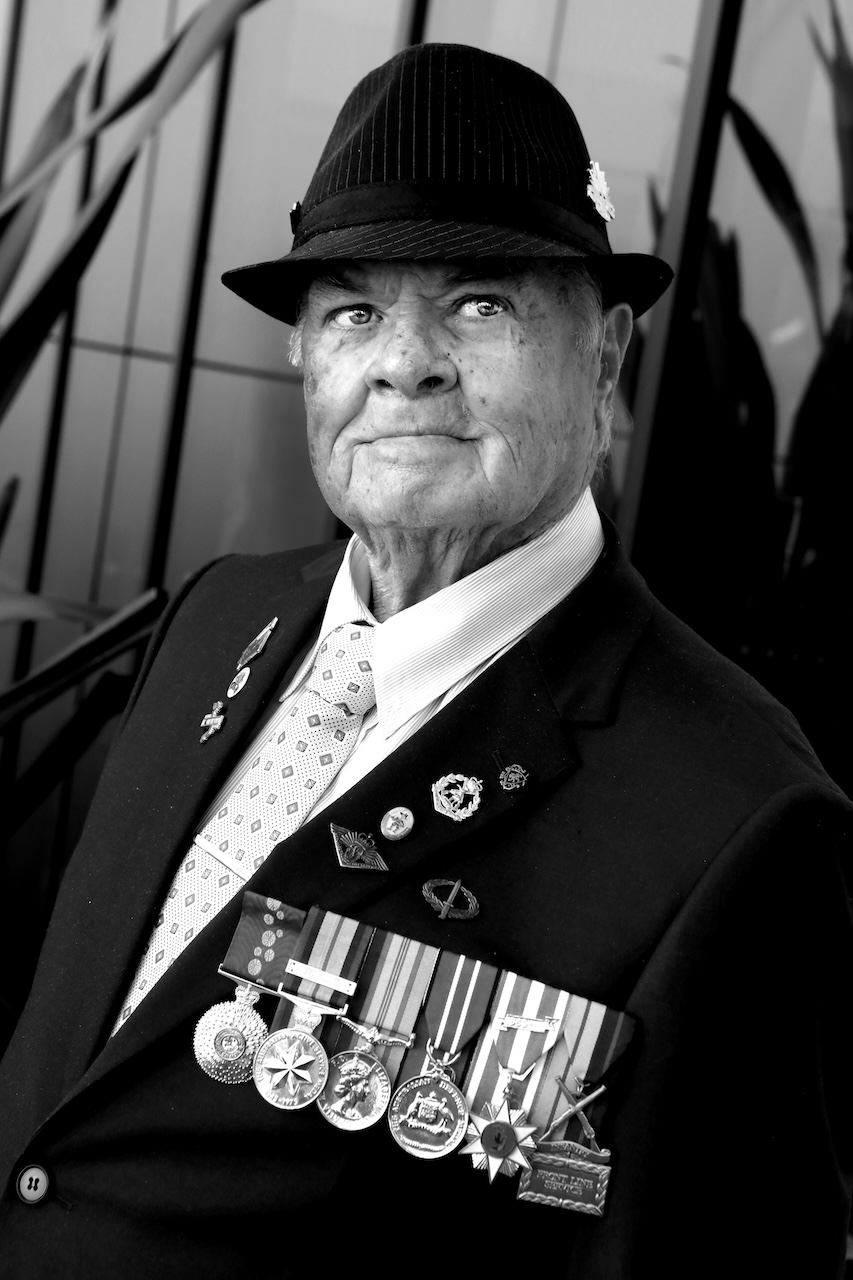Victor Bartley
Wiradjuri
Lance Corporal (retired)
7th Battalion Royal Australian Regiment
Royal Australian Infantry Corps
Australian Army
Medals and Awards
Order of Australia Medal (OAM)
Australian Active Service Medal 1945-75 with clasp Vietnam
Vietnam Medal
Australian Defence Medal
Republic of Vietnam Campaign Medal
Infantry Combat Badge
Returned from Active Service Badge
Infantry Front Line Service Medal
Royal Australian Regiment Badge
Marrickville Anzac Club Badge 1921
I was born in Quilpie in Queensland, but grew up living with my family in a tent at the end of the railway line in Bourke, in western NSW. My father was a Wiradjuri Man from around Dubbo, and Mum was a third-generation Scot from Cunnamulla. There was a lot of segregation and racism back then. The Aboriginal Welfare Board came in and took four of my brothers and sisters away just for something as small as wagging school. They were taken far way from us and we didn’t see them again until years later. There was nothing my parents could do about it back then. I only had the opportunity to do six years of schooling, ’cause you needed to get a medical certificate to go to school, and my parents were worried that if I got the certificate and then wagged school, the welfare would take me too.
When I was 19, I was called up for National Service but was rejected because I’d ticked the box on the form that said I was of Aboriginal descent. When I found out later that some of my Aboriginal mates had been accepted because they hadn’t ticked that box, I caught the train down to Sydney and volunteered for the Army. This time, I put my nationality as British and got accepted, so off I went to recruit training at Kapooka in 1968.
I was sent to Delta Company, 7th Battalion, Royal Australian Regiment. We had sixteen months more of hard infantry training before our battalion was sent to Vietnam in January 1970. They made me forward scout because they reckoned me being the shortest bloke in the section, I’d be able to get through the jungle easier. They’d send us out by helicopter or APC (Armoured Personnel Carrier) to do ambush patrols looking for the VC, weighed down with our heavy packs, rifles, and ammo. First time out of a helicopter, I landed face down in a rice paddy and couldn’t get up. My section leader had to haul me up out of the mud.
We were on almost continuous operations, sometimes for up to six weeks. We wouldn’t be able to shower the whole time, but we had this old Scottish Sergeant who insisted we had our hair cut. ‘Bring out a barber on that helicopter for these long-haired louts’, he’d tell HQ. ‘And tell him I want it cut short enough to see bone.’
It was hard, but I was with my mates, and we had fun together too. We got very close to each other over there. We became brothers in arms, and we’re still brothers in arms all these years later. There’d been a lot of racism growing up, but I never experienced racism in the Army. It’s like they say, we were all only one colour, green.
We returned from Vietnam in March 1971, and I left the Army when my time was up. I worked in Sydney for several years as an Aboriginal Liaison Officer with the Department of Social Security. In 1997, I moved back to Bourke. I’d been experiencing some mental health issues from my time in Vietnam, and being back on Country was healing. Now, I’m a Councillor on the Bourke Shire and President of Bourke RSL. I find that a lot of people still aren’t aware of the contribution Indigenous servicemen and women have made to this country. So, I go around to schools and tell the children about my experiences growing up, not being a citizen of my own country. I take them down to our Cenotaph and tell them about our Indigenous military history. I tell them not to listen to people who tell them they can’t do or be something. For those who say they wish they could go back in time and change the way we were treated I say, “We can’t, it can’t happen. What needs to happen is that we need to accept that it did happen and make sure everyone knows about what happened.” Indigenous and non-Indigenous people can learn from the past to make a better future for all of us Australians. I am what I am because of my service to my country and I feel honoured and proud to have done so.
